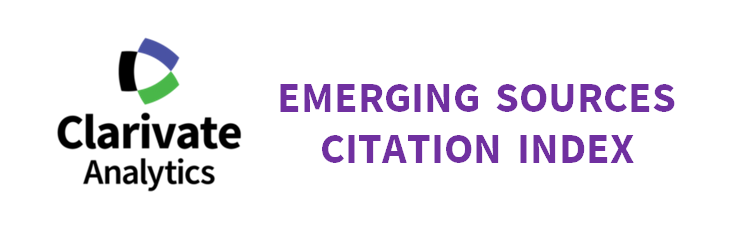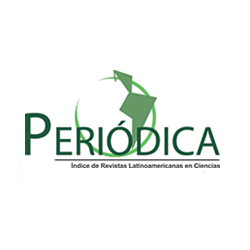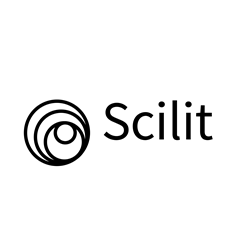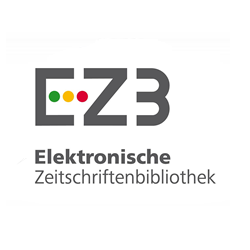On-line method for optimal tuning of PID controllers using standard OPC interface
DOI:
https://doi.org/10.17981/ingecuc.18.2.2022.02Keywords:
genetic algorithms, automatic tuning, Optimization, PID controllerAbstract
Introduction− The controlled PID is the most widely used mathematical algorithm as a regulatory control strategy in industrial environments. The applications are varied; however, its answer depends on the proper calculation of its three parameters: the proportional, the derivative, and the integral. Analytical tuning and experimental methods solve the problem, but new tuning possibilities are now enabled within the digital and process integration context.
Objective− Automatically and remotely obtain the optimal parameters of the PID controller, taking advantage of an online connection via the OPC communication protocol to analyze the transient response of the system.
Methodology− The study is carried out in three main phases; it begins with a PD3 SMAR thermal process with connection via OPC; in this phase, the mathematical model of the process is built analytically based on fundamental laws. In the second phase, using an analytical tuning method, the PID control architecture is created on which the online experimentation is carried out. In the third phase, the genetic algorithms for automatic tuning are implemented, extracting performance measures from the PID controller through the transient response of the process and optimally determining the values for the proportional, derivative, and integral parameters.
Results− The automatic tuning method was tested with two properly instrumented industrial processes. The potential for application can be seen due to its good result and because it does not require specific mathematical knowledge compared to conventional tuning methods.
Conclusions− The automatic tuning method can be used remotely to calculate the optimal parameters of a PID controller. The parameters are calculated from the transient response and the definition of design criteria adaptable to any need for control, response, and process.
Downloads
References
R. Borase, D. Maghade, S. Sondkar & S. Pawar, “A review of PID control, tuning methods and applications,” Int. J. Dyn. Control, vol. 9, no. 5, pp. 818–827, Jul. 2020. https://doi.org/10.1007/s40435-020-00665-4
V. Dubey, H. Goud & P. Sharma, “Role of PID Control Techniques in Process Control System: A Review,” in P. Nanda, V. K. Verma, S. Srivastava, R. K. Gupta & A. P. Mazumdar (eds), Data Engineering for Smart Systems. Lectures Notes in Networks and Systems, JAI, IN: Springer, 2021, pp. 659–670. https://doi.org/10.1007/978-981-16-2641-8_62
S. Albatran, I. Smadi & H. Bataineh, “Generalized optimal and explicit PI/PID tuning formulas for underdamped second-order systems,” Int. J. Control Autom. Syst., vol. 18, no. 6, pp. 1023–1032, Nov. 2019. https://doi.org/10.1007/s12555-019-0178-2
A. Bagis, “Determination of the PID controller parameters by modified genetic algorithm for improved performance,” J. Inf. Sci. Eng., vol. 23, no. 5, pp. 1469–1480, Sep. 2007. https://jise.iis.sinica.edu.tw/JISESearch/pages/View/PaperView.jsf?keyId=50_864
Y. Chen, Y. Ma & W. Yun, “Application of improved genetic algorithm in PID controller parameters optimization,” TELKOMNIKA, vol. 11, no. 3, pp. 1524–1530, Jan. 2013. https://doi.org/10.11591/telkomnika.v11i3.2301
C. Huang & Y. Bai, “PID Tuning of Networked Feedforward-Feedback Control Systems,” in Z. Hou (eds), Lecture Notes in Electrical Engineering. Measuring Technology and Mechatronics Automation in Electrical Engineering, NYC, NY, USA: Springer, 2012, pp. 369–376. https://doi.org/10.1007/978-1-4614-2185-6_45
S. Saxena & Y. Hote, “Internal model control based PID tuning using first-order filter,” Int. J. Control Autom. Syst., vol. 15, no. 1, pp. 149–159, Dec. 2016. https://doi.org/10.1007/s12555-015-0115-y
Y. Mitsukura, T. Yamamoto & M. Kaneda, “A design of self-tuning PID controllers using a genetic algorithm,” presented at 1999 American Control Conference-ACC, SD, CA, USA, 2-4 Jun. 1999. https://doi.org/10.1109/ACC.1999.783590
K. Amuthambigaiyin Sundari & P. Maruthupandi, “Optimal Design of PID Controller for the analysis of Two TANK System Using Metaheuristic Optimization Algorithm,” J. Electr. Eng. Technol., vol. 17, no. 1, pp. 627–640, Sep. 2021. https://doi.org/10.1007/s42835-021-00891-6
E. Jove, H. Alaiz-Moretón, I. García-Rodríguez, C. Benavides-Cuellar, J. Casteleiro-Roca, & J. Calvo-Rolle, “PID-ITS: an intelligent tutoring system for PID tuning learning process,” presented at International Joint Conference SOCO’17-CISIS’17-ICEUTE’17, LEO, ES, 6-8 Sept. 2017. https://doi.org/10.1007/978-3-319-67180-2_71
Z. Bingul, “A new PID tuning technique using differential evolution for unstable and integrating processes with time delay,” presented at International Conference on Neural Information Processing-ICONIP, CCU, IN, 22-25 Nov. 2004. https://doi.org/10.1007/978-3-540-30499-9_38
M. Gani, M. Islam & M. Ullah, “Optimal PID tuning for controlling the temperature of electric furnace by genetic algorithm,” SN Appl. Sci., vol. 1, no. 8, pp. 1–8, Jul. 2019. https://doi.org/10.1007/s42452-019-0929-y
M. Mavrinac, Z. iCar, M. Šercer & I. Lorencin, “Genetic Algorithm-Based Parametrization of a PI Controller for DC Motor Control,” Tehn. Glas., vol. 16, no. 1, pp. 16–22, Feb. 2022. https://doi.org/10.31803//tg-20201119185015
S. Kodali, R. Mandava & B. Rao, “Development of an Optimal PID Controller for the 4-DOF Manipulator Using Genetic Algorithm,” in R. Agrawal, J. K. Jain, V. S. Yadav, V. K. Manupati, L. Varela (eds), Recent Advances in Industrial Production. Lecture Notes in Mechanical Engineering, GBG, SE: Springer, 2021, pp. 23–32. https://doi.org/10.1007/978-981-16-5281-3_3
D. Shan, C. Li, X. Qiu & W. Wei, “PID Parameters Tuning Based on Self-Adaptive Hybrid Particle Swarm Optimization Algorithm,” in Z. Zhong (eds), Proceedings of the International Conference on Information Engineering and Applications (IEA) 2012. Lecture Notes in Electrical Engineering, CQ, CN: Springer, 2013, pp. 751–757. https://doi.org/10.1007/978-1-4471-4847-0_92
S. Singh & N. Katal, “Optimal tuning of PID controller for coupled tank liquid level control system using particle swarm optimization,” presented at Sixth International Conference on Soft Computing for Problem Solving-SocProS 2016, PTL, IN, 23-24 Dec. 2016. https://doi.org/10.1007/978-981-10-3325-4_8
C. Sravan Bharadwaj, T. Sudhakar Babu & N. Rajasekar, “Tuning PID controller for inverted pendulum using genetic algorithm,” in, A. Konkani, R. Bera & S. Paul (eds), Advances in Systems, Control and Automation, SG: Springer, 2018, p. 395–404. https://doi.org/10.1007/978-981-10-4762-6_38
N. Thomas & D. P. Poongodi, “Position control of DC motor using genetic algorithm based PID controller,” presented at World Congress on Engineering, WCE 2019, LDN, UK, 3-5 Jul. 2019. http://www.iaeng.org/publication/WCE2019/
J. C. Tudon-Martínez, J. d.-J. Lozoya-Santos, A. Cantu-Perez & A. Cardenas-Romero, “Advanced Temperature Control Applied on An Industrial Box Furnace,” J. Therm. Sci. Eng. Appl., vol. 14, no. 6, pp. 061001-1–061001-14, Jun. 2022. https://doi.org/10.1115/1.4052020
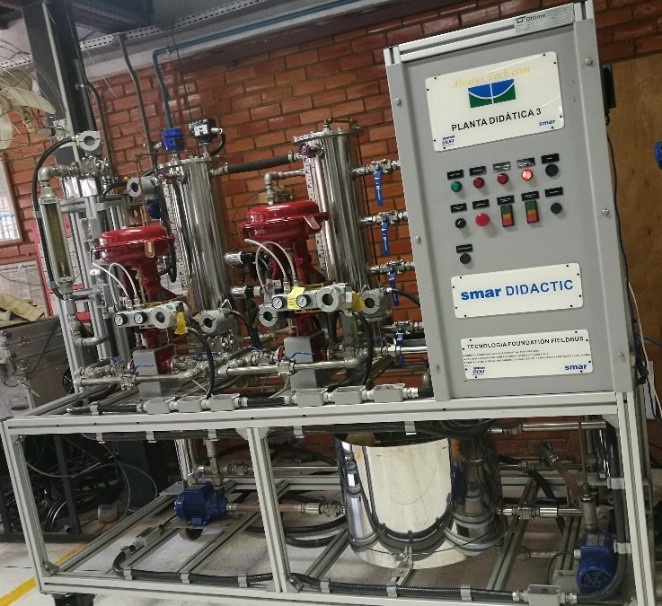
Published
How to Cite
Issue
Section
License
Copyright (c) 2022 INGE CUC

This work is licensed under a Creative Commons Attribution-NonCommercial-NoDerivatives 4.0 International License.
Published papers are the exclusive responsibility of their authors and do not necessary reflect the opinions of the editorial committee.
INGE CUC Journal respects the moral rights of its authors, whom must cede the editorial committee the patrimonial rights of the published material. In turn, the authors inform that the current work is unpublished and has not been previously published.
All articles are licensed under a Creative Commons Attribution-NonCommercial-NoDerivatives 4.0 International License.


 English
English
 Español (España)
Español (España)
